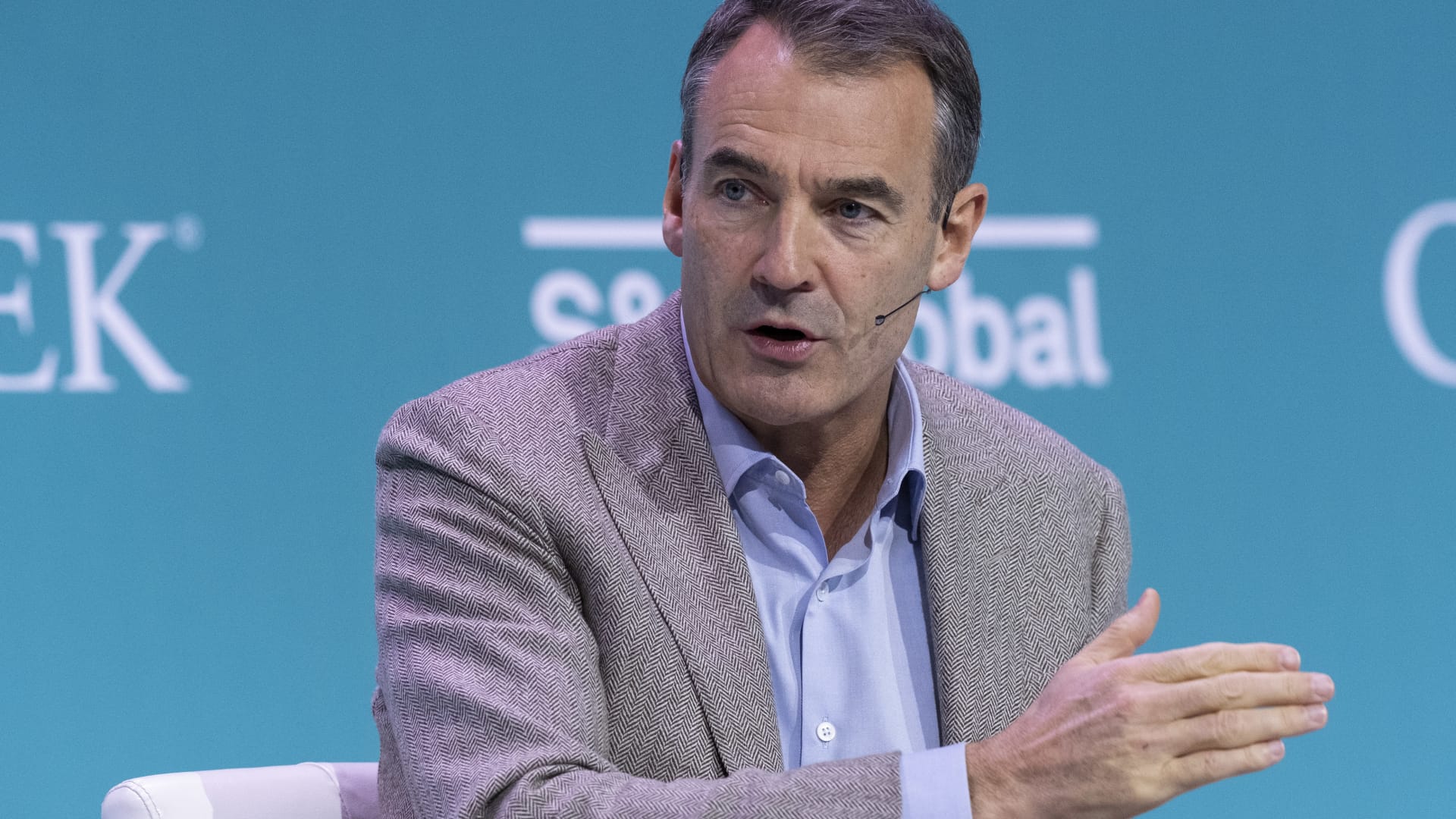World needs to accept the urgent need for fossil fuel investment now, BP CEO says

BP’s strategy is centered around investing in hydrocarbons whilst simultaneously putting money into the planned energy transition, the oil and gas supermajor’s CEO said Monday.
“What the world needs, more than ever right now, is a conversation and a series of actions that are involved in the practicalities and realities of today and tomorrow,” Bernard Looney, who was appearing on a panel discussion moderated by CNBC’s Hadley Gamble, said.
“And by that I mean, our strategy as BP — which we’re executing in the U.K., we’re working on here in the Middle East and we’re doing it in the United States and across the world — is to invest in hydrocarbons today, because today’s energy system is a hydrocarbon system,” he added.
BP CEO Bernard Looney photographed in Texas on March 8, 2022. During a panel discussion on Oct. 31, 2022, Looney said his firm’s strategy was to “to invest in hydrocarbons today, because today’s energy system is a hydrocarbon system.”
F. Carter Smith | Bloomberg | Getty Images
Speaking at the Adipec conference in Abu Dhabi, Looney said his company was “obviously trying to produce those hydrocarbons with the lowest possible emissions” whilst at the same time investing in “accelerating the energy transition.”
“And we’re doing that in Britain, we’re doing that in the United States, we’re doing it here,” he said, namechecking carbon capture, electric vehicle charging, hydrogen and offshore wind.
A major producer of oil and gas, BP says it’s aiming to become a net-zero company by the year 2050 or before. It’s one of many major firms to have made a net-zero pledge in recent years.
While such commitments draw attention, actually achieving them is a huge task with significant financial and logistical hurdles. The devil is in the detail and goals can often be light on the latter.
Looney’s comments on investing in hydrocarbons come at a time when high profile figures such as U.N. Secretary General Antonio Guterres are making their feelings on fossil fuels known.
In June, for example, Guterres slammed new funding for fossil fuel exploration. He described it as “delusional” and called for an abandonment of fossil fuel finance.
Fossil fuels’ effect on the environment is considerable. The United Nations says that, since the 19th century, “human activities have been the main driver of climate change, primarily due to burning fossil fuels like coal, oil and gas.”
Back in Abu Dhabi, BP’s Looney referenced the war in Ukraine as he sought to make the case for developing a system focused on a range of sources and priorities.
“There is a saying that wars do two things: wars reveal, and wars accelerate,” he said.
“And one of the things that it has revealed is that whenever we focus on just one thing, it can end up being a problem,” he went on to say.
Expanding on his point, Looney said that if he’d “asked anybody in Europe two or three years ago what they wanted from energy they would almost exclusively have said net-zero.”
“If I ask them today what they want from energy, they will inevitably tell you they want an energy system that works.”
An energy system that worked, he argued, was “an energy system that provides the world — Europe in this example — with secure energy, affordable energy and cleaner energy.”
What the planet needed, he later added, was a plan that didn’t solely address lowering emissions but security and affordability too.
“We should be very optimistic here,” he added, going on to note that “many of the things that will help energy security, help a cleaner energy system.”
“Offshore wind is local, hydrogen can be local, EV charging, electrifying transport, is local, bioenergy is local — so the things that contribute to a lower carbon economy also contribute to energy security.”
“And if we have a more diversified system, over time, we should have a more affordable system.”